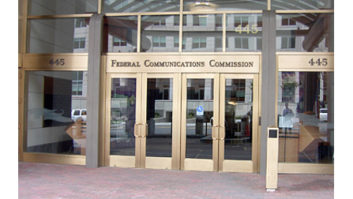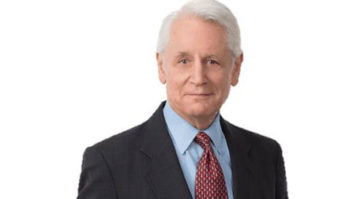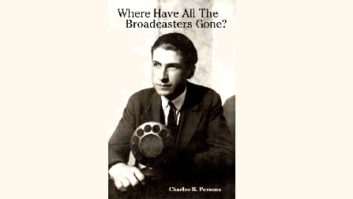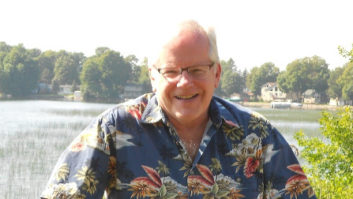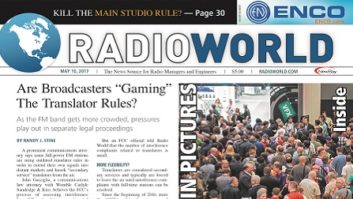A prominent communications attorney says some full-power FM stations are using outdated translator rules in order to extend their own signals into distant markets and knock “secondary service” translators from the air.
John Garziglia, a communications law attorney with Womble Carlyle Sandridge & Rice, believes the FCC’s process of assessing interference from fill-in translators is antiquated and should be revised to account for thousands of new translators added in recent years.
In some cases, the FCC is axing fill-in FM translators from the air by following the very rules meant to boost the number of FM translators, Garziglia said — sometimes after receiving only a single interference complaint.
But an FCC official told Radio World that the number of interference complaints related to translators is small.

credit: iStockphoto/Robin Olimb
MORE FLEXIBILITY?
Translators are considered secondary services and typically are forced to leave the air until interference complaints with full-time stations can be resolved.
Since the beginning of 2016, more than 1,850 translators have commenced operations with new or modified facilities, the FCC said. That includes several hundred translators that were moved significant distances in the 2016 AM revitalization windows.
There are now approximately 7,200 FM translators licensed in the United States, according to the latest FCC data available.
The explosion of translators in the United States has left the FM band more crowded in larger markets, but Garziglia said interference complaints are not always legit and that punishment meted out by the FCC is based on the commission’s outdated definition of a fill-in area translator.
“These distant out-of-market interference complaints are hindering efforts of owners of FM translators from providing enhanced service to their local communities,” Garziglia said. “It’s time to rethink the FCC’s FM translator interference rules and policies.”
Several recent actions in Washington could lead to just that.
The National Association of Broadcasters in April proposed rule changes to give translator licensees more flexibility in order to resolve interference complaints. In a petition for rulemaking, NAB asked the FCC to consider policy changes meant to “facilitate the efficient disposition of interference complaints against translators.”
“We propose that Section 74.1233 of the rules be amended to allow translators to move anywhere on the FM dial (instead of only to an adjacent or IF-related channel) to resolve interference, as a minor change,” the NAB wrote in the executive summary. “This additional flexibility will enable more translator licensees to efficiently cure interference by simply changing channels.”
The NAB suggests four procedural changes to improve the process for resolving interference complaints against translators.
“First, we propose that an actionable complaint should be supported by interference complaints from at least six different listeners to the desired FM station, or perhaps more or less depending on the specific circumstances, such as whether the relevant service area is rural or urban,” it stated.
It goes on to say such complaints must be verifiable statements “that include clear evidence that the complainant is a regular listener of the FM stations and unaffiliated” with the complaining station.
“Third, actual interference must be shown from a sufficient number of locations to indicate a consistent problem, and be confirmed by an on/off test, where practical,” the NAB states.
“Finally, an actionable complaint must document that the full-power station has used commercially reasonable practices to inform the relevant translator licensee of the claimed interference, to ensure an opportunity for the parties to cooperate on resolving the alleged interference without commission involvement, and if an interference complaint is subsequently filed, resolution should be governed by a specific time limit (e.g., 90 days).”
AZTEC
Separately, the owner of an FM translator in Philadelphia filed a petition for rulemaking in April seeking a “rebalancing of the equities in the FM translator rules” so that radio service provided by fill-in translators is not “forestalled or removed by distant radio stations far outside” a local radio market.
Aztec Capital Partners Inc. is seeking to rebroadcast its Spanish language programming from WHAT(AM) on a fill-in translator at 92.1 MHz. However, a complaint lodged by Clear Communications Inc. alleges potential interference with its full-power Class A FM station WVLT on the same frequency in southern New Jersey, approximately 50 miles away, according to the petitioner.
“Clear Communications is attempting to extend its signal into the Philadelphia metro area claiming listeners far outside its community of license and service area. These filings allege interference to at most several dozen purported distant listeners in the Philadelphia metro area,” Aztec Capital Partners wrote in its petition.
Art Camiolo, general manager of El Zol Media, a subsidiary of Aztec Capital Partners, said the listeners of a local FM translator deserve some consideration when the FCC looks into interference complaints.
“We want to serve the local Latino audience in Philadelphia. We are not saying full-power stations don’t deserve protection, but there really should be some relief for the owners of FM translators targeted by distant owners claiming interference,” Camiolo said, “especially when our goal is the local revitalization of radio.”
He believes local radio service provided by an FM translator should not be removed from the air by the FCC unless there is a “significant public interest reason to do so, and the public would be significantly served by such a loss of service.”
Aztec Capital Partners wrote, “We believe that there has been a fundamental shift in the nature of FM translators in that they now provide AM revitalization lifelines and diverse HD sub-channel programming to local radio listeners. FCC policy and rules have not adjusted.”
The FCC agreed to accept public comments on the petition for rulemaking (RM-11786), but declined to comment about ongoing rulemaking procedures.
FEW COMPLAINTS
Despite the huge spike in FM fill-in translators, FCC officials told Radio World there has been only a small increase in interference complaints against FM translators in the past 36 months.
The FCC has issued several thousand new translator station CPs or modified translator authorizations over the past three years and “has seen only a slight increase in the number of complaints from existing FM stations during this time,” according to an official who asked not to be identified.
“During that same time, we have received FM translator station interference complaints on less than 1 percent of the translators that have commenced operations.”
A fill-in translator station rebroadcasts the signal of a primary FM or AM station on a separate frequency. The secondary service, which allows a translator station to have a max power of 250 watts, was created in 1970 to help FM stations provide supplementary service to areas with indirect reception.
AM stations were first authorized to use FM translators to rebroadcast its programming in 2009; in many cases translators are used to rebroadcast HD Radio sub-channels of the primary FM.
“CASUAL MANNER”
Garziglia said he isn’t surprised to see an increase in interference complaints, if only a small one, especially since an FCC filing window in 2016 allowed some FM translators with AM primary stations to move facilities within 250 miles of the original translator location.
While he is not seeking a change in secondary status for FM translators, Garziglia points to a 1990 FCC FM Translator Report and Order that updated rules as now being outdated.
“Are those 1990 rules equitable any longer? They only looked at the translator service then when a single listener complaint of interference to a distant radio station from a FM translator could get the translator removed from the air. And it still can today,” Garziglia said.
Some owners of full-service FMs are attempting to extend their signals to that last bit of owner’s contour that is “just FM hash anyway,” Garziglia said.
“Is that really in the public interest any longer? Distant out-of-market interference complaints are threatening to deny local radio service to thousands of local radio listeners. You have scenarios now that the FCC is denying radio service to thousands of local listeners by allowing full service FMs to extend their listening areas to the very distant edge where there might be just a handful of people listening,” Garziglia said.
He also claims a significant number of listener interference complaints against FM translators before the FCC have connections to distant FMs through family, employees and friends.
Garziglia said most of the interference complaints the FCC receives against FM translators are being handled by the Audio Division. “I’m not aware of any complaints in the past 10 years that have gone up for a commission review. Maybe some of these rules used by the Audio Division should be reviewed,” he said.
He has clients who own FM translators who have been subject to distant station complaints. “I also have clients [for whom] FM translators are causing legitimate interference to existing radio service that we are addressing,” he said.
Under current procedures, Garziglia feels, unverified interference complaints are accepted as truth by the FCC, with the commission only exchanging informal emails with the involved parties.
“The casual manner in which the FCC appears to be handling these complaints is concerning,” he said. “It’s hard to find out how many complaints are being filed and how the proceedings are being handled. Often you can’t find them in CDBS [Consolidated Database System] or in public filings.”
The Washington-based attorney says he is aware of FM translators that have been forced to make channel changes to remediate the interference or sign off. “And that is where the informal nature of the FCC’s proceedings becomes an issue, sometimes simply sending e-mails or a letter to FM translator licensees ordering them off the air,” Garziglia said.
FCC rules clearly say “an interfering FM translator station must resolve any such interference or cease operation.”
ZERO TOLERANCE
A commission official told Radio World that the FCC staff reviews each interference complaint that comes to their attention but could not discuss specific cases involving translators.
“In some instances, a translator is able to take immediate steps to resolve or address an FM station’s complaint. Our zero tolerance is explained in paragraph 83 of the 2012 LPFM order,” the official said.
Section 74.1203 sets forth the rights and obligations for FM translators that are alleged to cause interference. That rule prohibits “actual interference to … the direct reception by the public of the off-the-air signals of any authorized broadcast station,” the official said.
The FCC has interpreted “direct reception by the public” to limit actionable complaints to those that are made by bona fide listeners. “The commission also requires that a complainant be ‘disinterested,’ e.g., a person or entity without a legal stake in the outcome of the translator station licensing proceeding,” the official said. “As with other types of interference complaints, the staff has considered only those complaints of FM translator interference where the complainant cooperates in efforts to identify the source of interference and accepts reasonable corrective measures.”
Once the commission concludes that a listener has made an actionable complaint of uncorrected interference from an FM translator, it will notify the station that interference is being caused and direct the station to either resolve the interference, generally within 30 days, or discontinue operations.
DON’T “GAME” THE SYSTEM
There is support for Garziglia’s position from others who feel the FCC’s zero tolerance policy for translators that cause interference to distant FMs needs revision.
Charles Anderson, president of engineering consulting firm Anderson Associates, said it is time the FCC recognizes the need to give fill-in translators some protection short of a primary license.
“The number of required interference complaints and their documentation should be strengthened to prevent gaming of the current system,” Anderson said. “The commission should also permit translators faced with an interference complaint to modify to any channel in the commercial band as a minor change.”
Ed Henson, president of Henson Media, which owns primary FM stations and several fill-in translators, said the FCC deserves credit for allowing AM stations to utilize fill-in translators, but agrees the interference issues are a concern to many radio station owners.
“The FCC has done a lot to help radio operators and deserves recognition for that. I’m not an engineer but understand FCC’s allocation process and respect that. However, when it comes to the way FCC resolves complaints in regards to FM translator interference it deserves another look,” Henson said. “I think we need a better system to resolve complaints.”
Henson — an NAB Radio Board member but commenting only on his own behalf — said he understands the FCC is working with limited resources and personnel but feels radio owners deserve more clarity when it comes to interference rules.
“This is not a small market versus large market issue, either. You have big owners and smaller owners who are complaining about interference from translators. But yet, theoretically it takes just one official complaint to negate all the work an AM owner has done to buy a translator, pay for engineering work and file paperwork with the FCC. It has to be frustrating to go through that and scary to go through,” Henson said.
He sees the need for a balance at a time of a major shifting in the number of FM translators on the air.
“It will be hard to gain a consensus on this topic, and rightly so. But there has to be a solution. At what point are full-power stations granted total immunity from interference and what contour will serve as the cut off?”
Observers believe the interference issues could even accelerate in 2017, with the FCC soon to open two windows for AM operators to apply for new FM fill-in translators. The FCC in February also extended the fill-in area in which the 60 dBu service contour of a FM translator can be placed to rebroadcast the AM primary station.
Comment on this or any story to[email protected].





